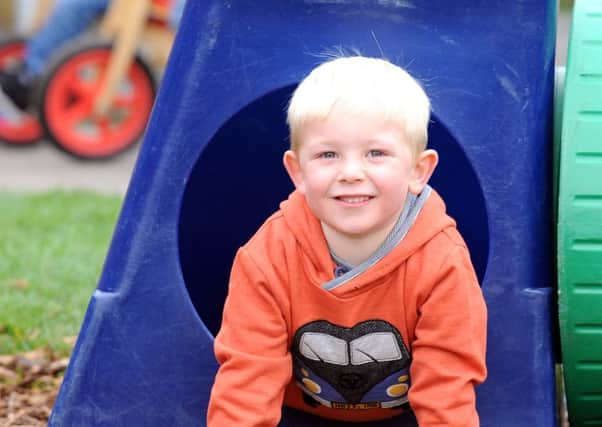Jonathan Wood: The hidden cost of shielding our children from the world


In the last few weeks, we have heard a lot of worrying stories about aggression and violence towards immigrants. This is frightening and unpleasant for adults, but we should also never forget the long-lasting impact on the children of families who struggle to assimilate into the culture they have adopted.
As a psychotherapist, I hear many such stories, although of course I always have to protect people’s anonymity. Two stories have immediately sprung to mind when reflecting on recent events.
Advertisement
Hide AdAdvertisement
Hide AdMany years ago, I worked with a man whose parents had come to the UK from Germany in 1940. Over time, they had perfected a strategy of fitting in, of not sticking their heads above the parapet. With the zeal of survivors, they set about bringing up their children holding rigidly to these principles. It was a strict household for – they thought – the best reasons.
My client reached adolescence in the late 1960s. It was a flamboyant time, challenging all the accepted wisdoms, and he wanted to be part of it. He dreamt of being an actor. His parents, after years of trying to stay invisible, were mystified and unsupportive.
He came for therapy in his forties. By then he was highly anxious. He had no sense of belonging anywhere or to anyone, not unlike his parents in 1940. He had had spells of homelessness. Therapy made a difference to him but it would have been easier if he had come as an adolescent: easier still if his parents had sought help.
At Place2Be we work in schools with children and their parents. One little girl, aged seven, told us about her anxieties. Her mother was always getting at her, she said, telling her she was not good enough. The child was very distressed.
We met the mother, a first generation Polish immigrant who had been very isolated since the family moved to Scotland two years before. Her husband was often away working. She held her daughter tightly to her because she had no-one else. She poured all her own anxieties about not being good enough and not fitting in, into her daughter. She had not realised the impact this was having.
We offered both the mother and daughter therapeutic support, and in time, she was able to form a social network and a sense of belonging. The child blossomed.
As parents, it can be tempting to try to shield children from what is going on in the world around them, but in reality, this is rarely practical or possible. Children are inevitably exposed to a myriad of media, and pick up on the conversations around them. This may leave some children feeling upset or even unsafe.
It’s important to take the time to carefully answer any questions they may have, whilst not overwhelming them with information. Hopefully then, we can teach our next generation a generosity of spirit towards others, which will leave a lasting positive impact on our communities.
• Jonathan Wood, National Manager for Scotland, Place2Be